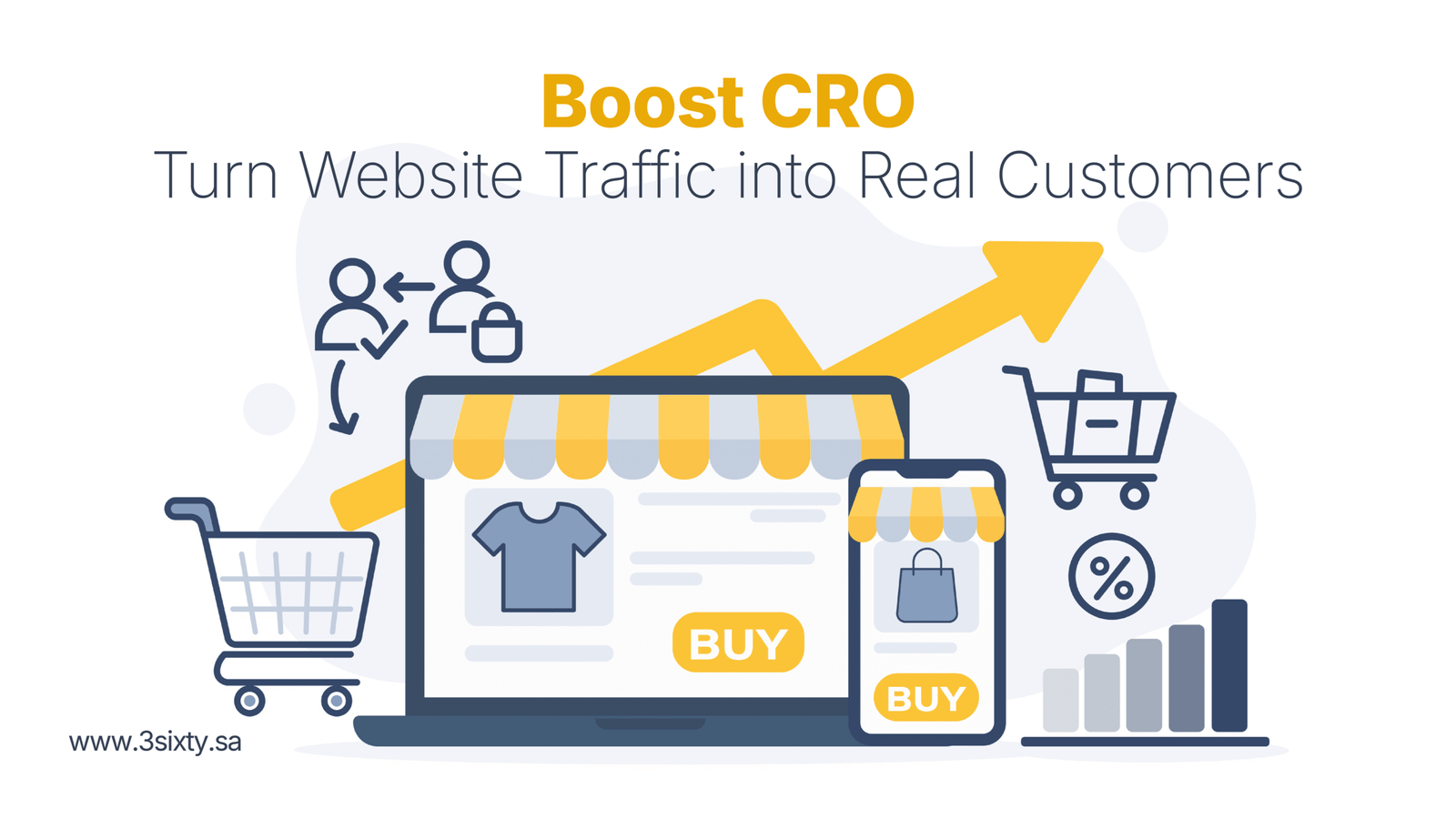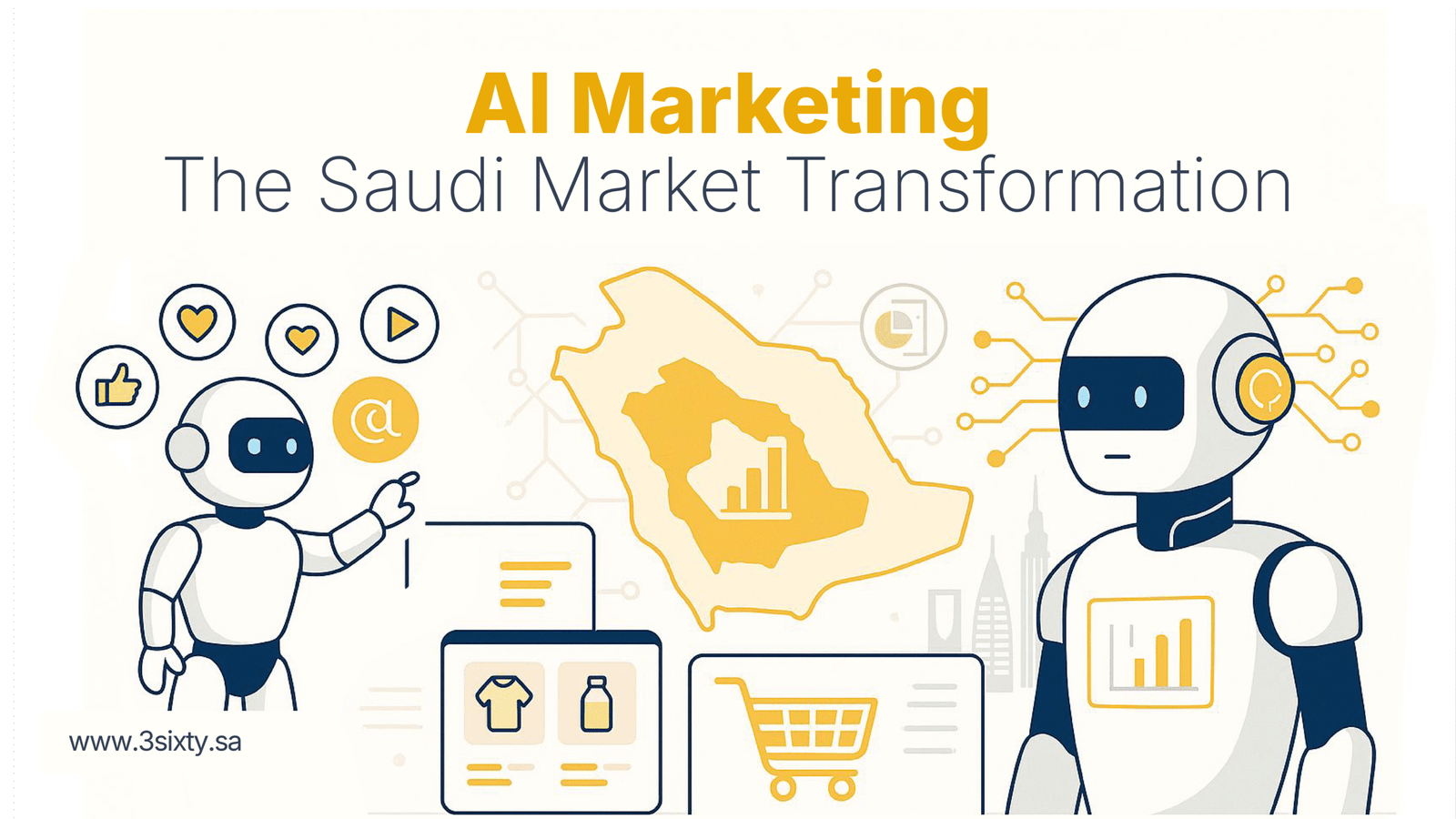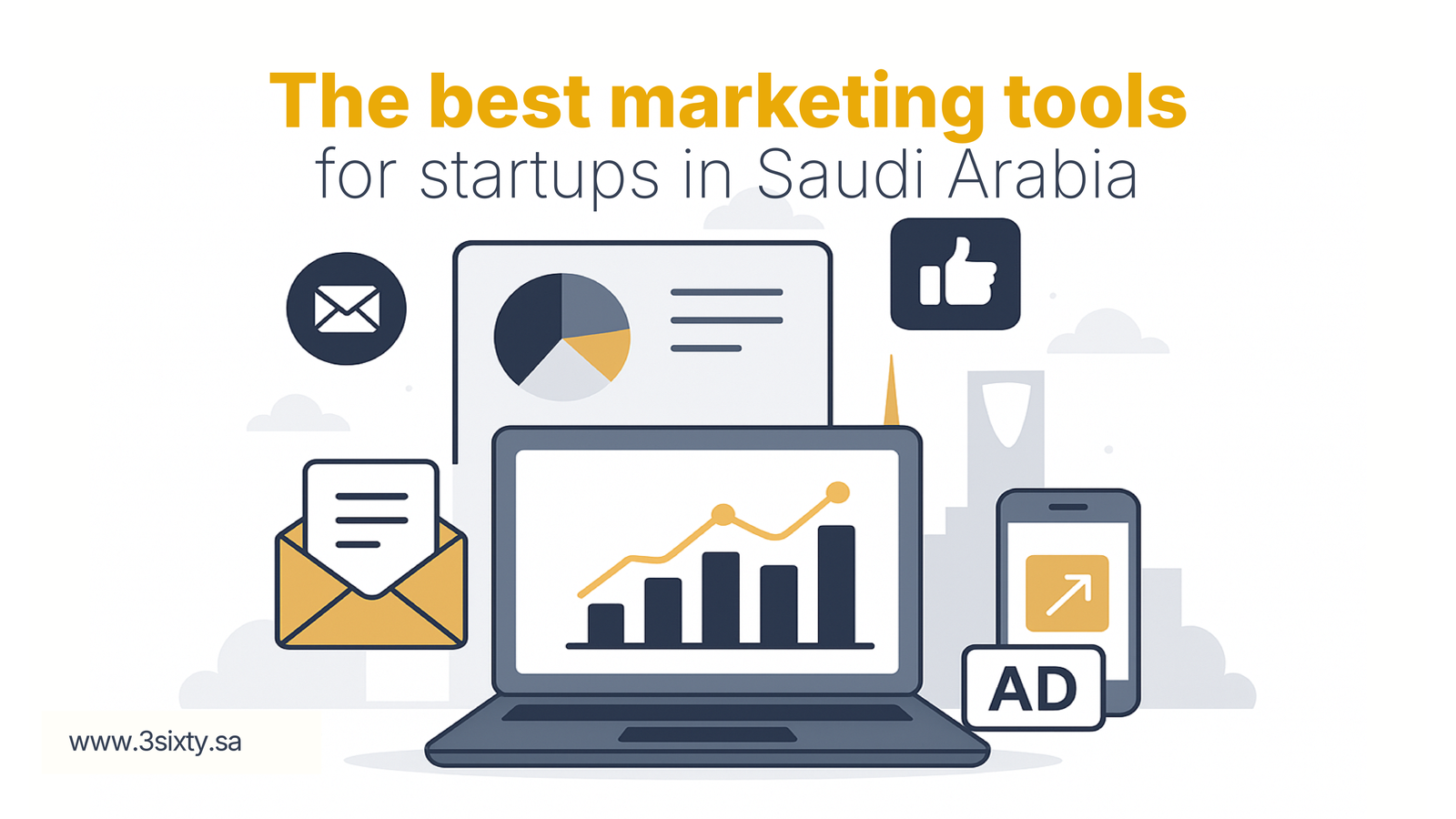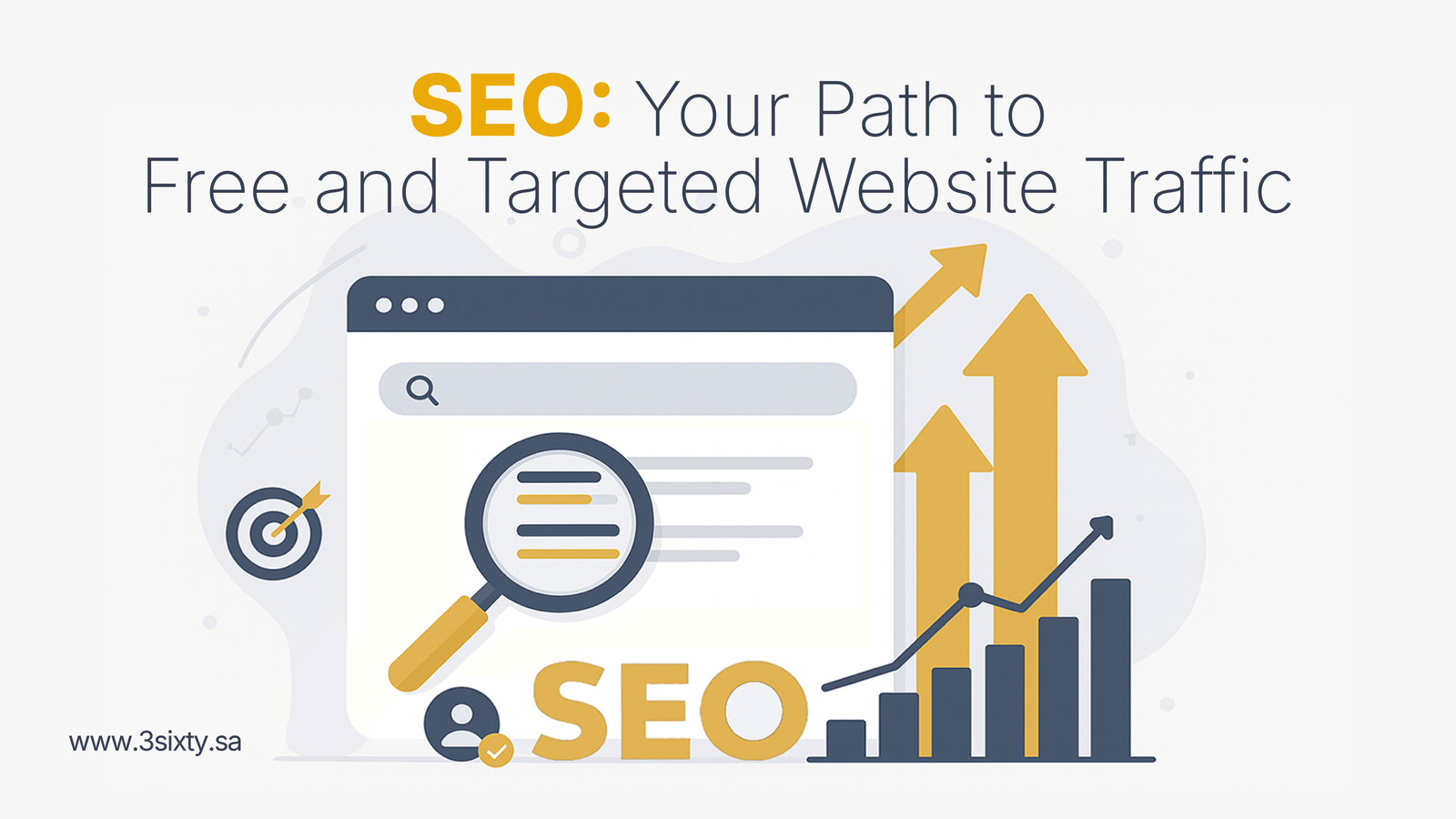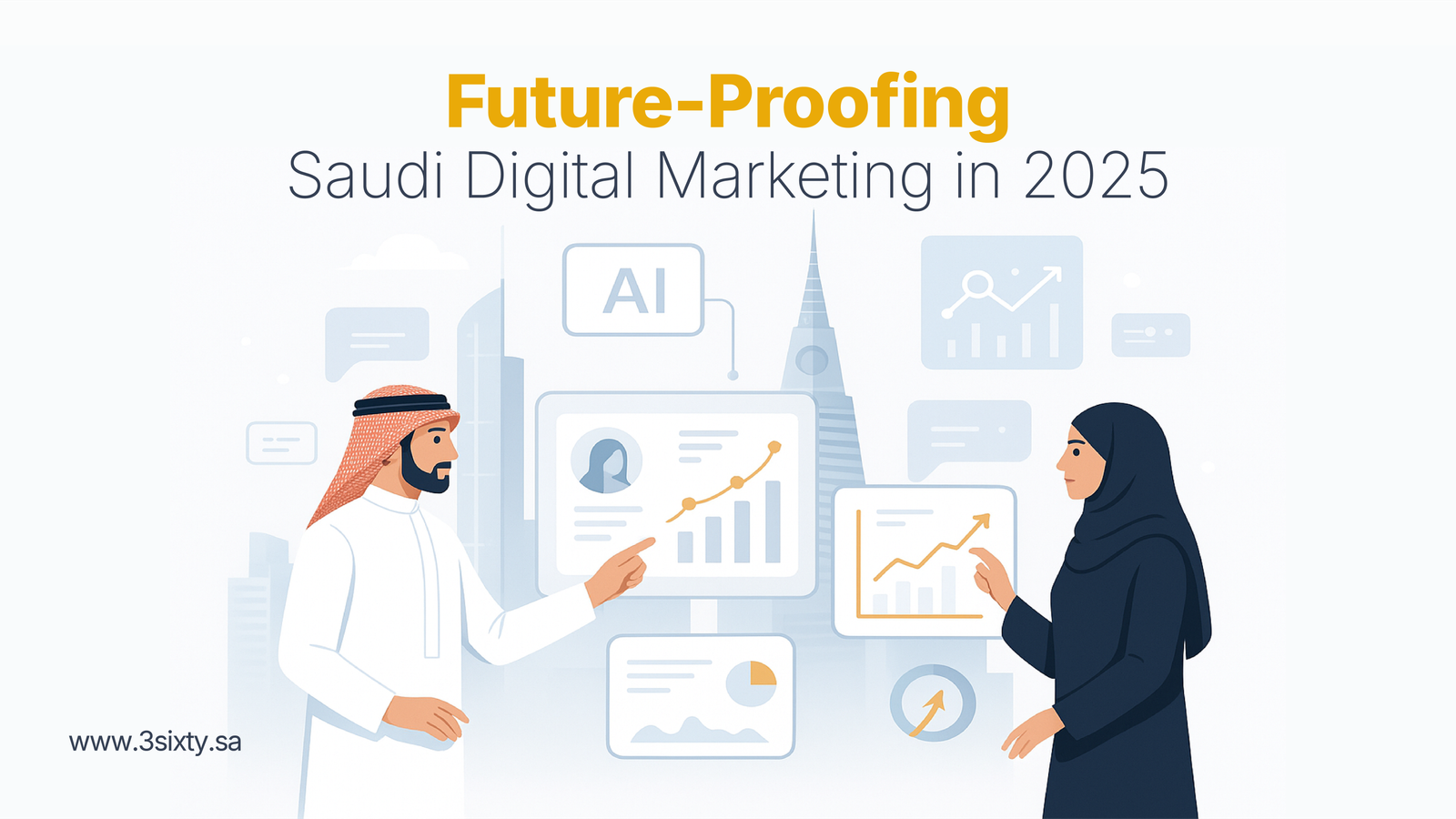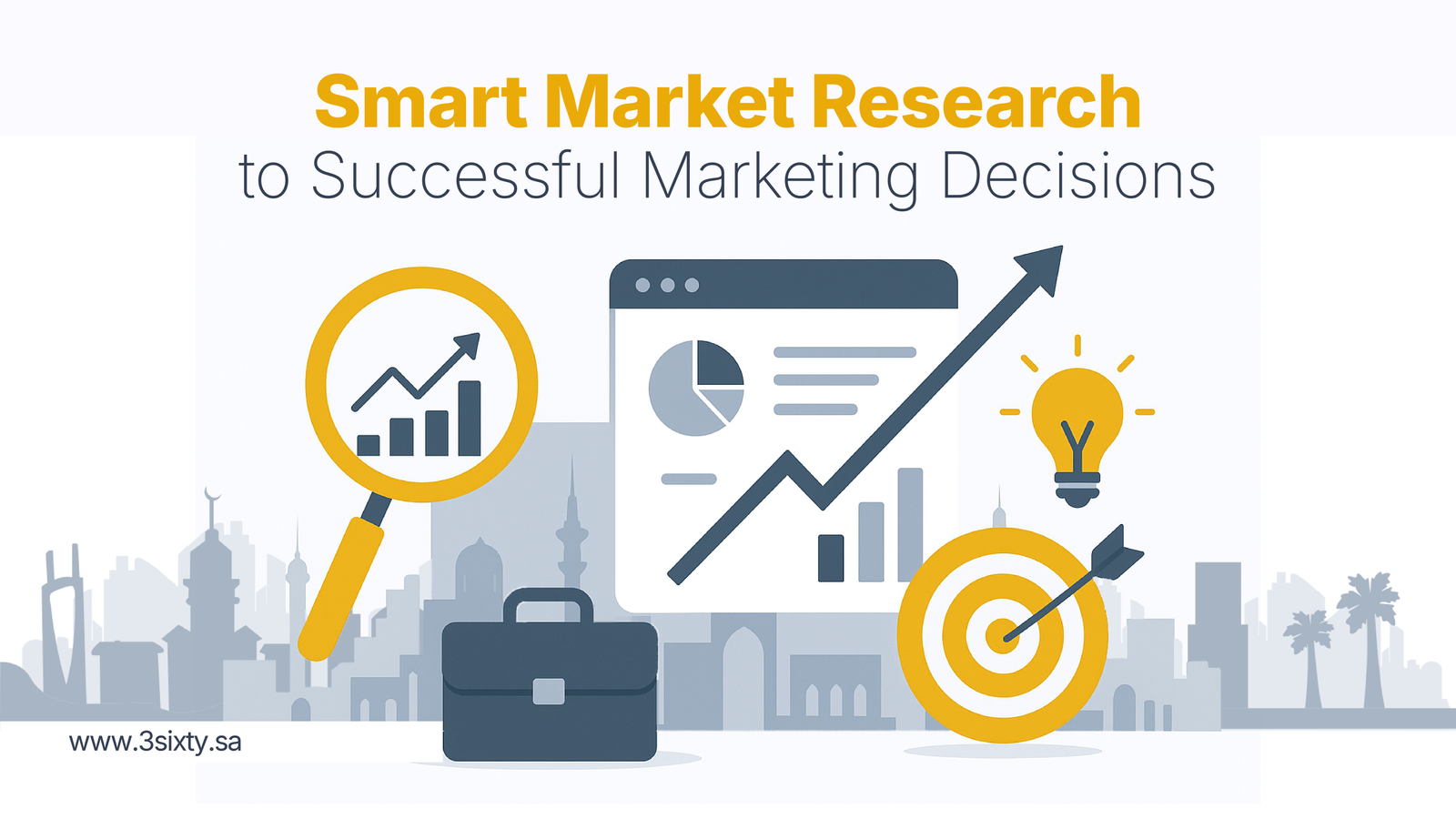How AI tools are revolutionising e-marketing in Saudi Arabia
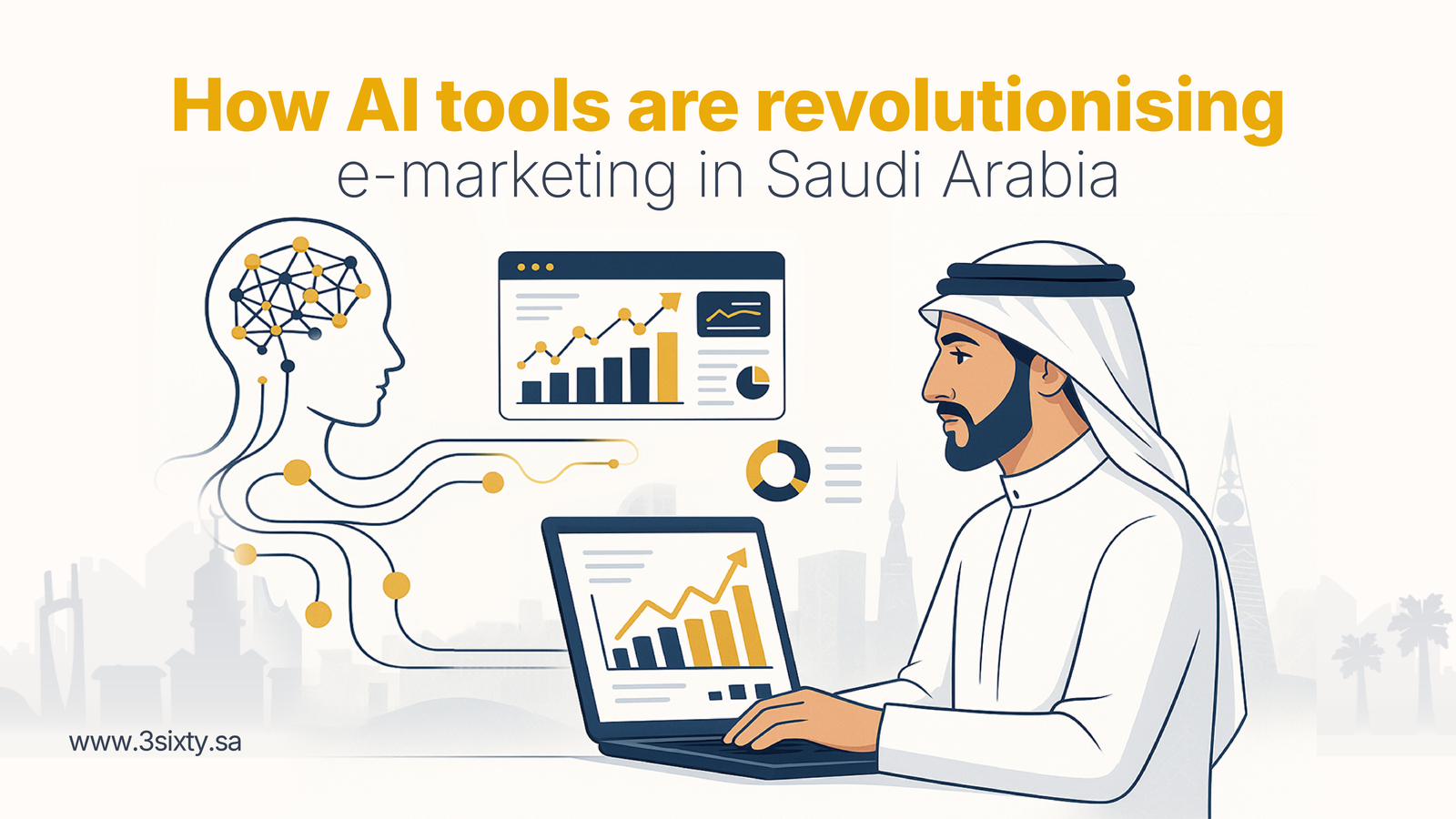
AI tools in e-marketing help balance all marketing teams, so a recent survey of over 4,000 marketers was expected to show results, most of whom expected AI to be used frequently in almost every job.
This is because these tools help improve the quality of decisions by providing instant analytics and thoughtful suggestions, and enabling teams to implement more accurate and personalised campaigns in less time.
Table of Contents
- What are AI tools in e-marketing
- Benefits of using AI tools in electronic marketing
- How AI enhances customer experience and ensures business sustainability
- How to choose the right AI tools for your project?
- Challenges of using artificial intelligence technologies in Saudi institutions
- What are the most critical AI marketing tools that enhance your digital strategy?
- The future of AI tools in marketing: where are we headed?
- Frequently Asked Questions (FAQ):
What are AI tools in e-marketing
Innovative marketing tools are software that rely on the use of artificial intelligence technologies such as machine learning, Big Data analysis, and NLP to understand customer behaviour, interact with them, and predict their needs, as advanced means of increasing sales and establishing loyalty through digital channels. The most prominent of these tools include:
- Chatbots (Chatbots)
- Intelligent Customer Relationship Management (CRM) Systems
- Advertising campaign management platforms powered by predictive intelligence
With this expansion in use,AI tools has become a pivotal and indispensable for achieving effective and sustainable marketing results.
Benefits of using AI tools in electronic marketing
- Improved data analysis: AI marketing tools can analyse vast amounts of data accurately and quickly, helping companies explore patterns, anticipate customer needs, and thus make data-driven marketing decisions.
- Advanced Personalisation: Thanks to AI marketing tools, audiences can be segmented and personalised experiences delivered by analysing customer behaviour and providing targeted content and personalised offers, increasing customer engagement and conversion rates.
- Effective automation: AI allows routine tasks like sending emails and scheduling social media posts to be automated, allowing marketers to focus on more critical strategies.
- Instant Optimisation: AI marketing tools allow monitoring and analysing the performance of marketing campaigns in real time, allowing strategies to be quickly modified to achieve the best results.
- Using AI tools, marketing efficiency can be improved and campaign effectiveness significantly increased, contributing to achieving desired results.
Therefore, integrating these tools into e-marketing strategies is no longer a luxury but rather a competitive necessity to achieve growth and superiority in the digital market.
How AI enhances customer experience and ensures business sustainability
Customer experience is one of the critical factors for business success and continuity today. As technologies evolve, AI tools play a vital role in improving customer experience and enhancing business continuity. Here are some ways to prove it:
24/7 smart support
Artificial intelligence provides superior and efficient customer service because it allows interaction with customers through intelligent chat interfaces, such as chatbots and voice assistants, such as Siri, providing an immediate and professional response to customer inquiries and problems.
AI can also analyse customer records and provide personalised recommendations and practical solutions, contributing to improved customer experience and increased customer satisfaction.
Customise content and offers.
AI tools are used to analyse big data for customers and understand their needs and preferences. Based on this information, AI can deliver personalised experiences to each customer.
These experiences can include innovative promotions, recommended products, personalised recommendations, and other personalised services that enhance customer engagement and loyalty, thus improving business continuity.
Predicting customer needs
Intelligent systems rely on machine learning to predict customer behaviour and future needs, allowing companies to provide proactive solutions before a customer even requests them.
Immediate and interactive response
Artificial intelligence enhances organisations’ ability to react instantly and respond to customer needs quickly and accurately. AI tools can monitor customers’ facial features, feelings, and expressions to deliver an enhanced and unique experience.
For example, robots equipped with artificial intelligence can learn from customer interactions and modify their behaviour accordingly, contributing to improved customer satisfaction and business continuity.
By using advanced AI technologies, organisations can improve customer experience and thus increase their satisfaction and loyalty. In turn, this leads to business continuity, increased sales, and success in a highly competitive market.
Therefore, companies must leverage the potential of artificial intelligence and employ it to improve customer experience and maintain business continuity in an era of continuous technological transformation.
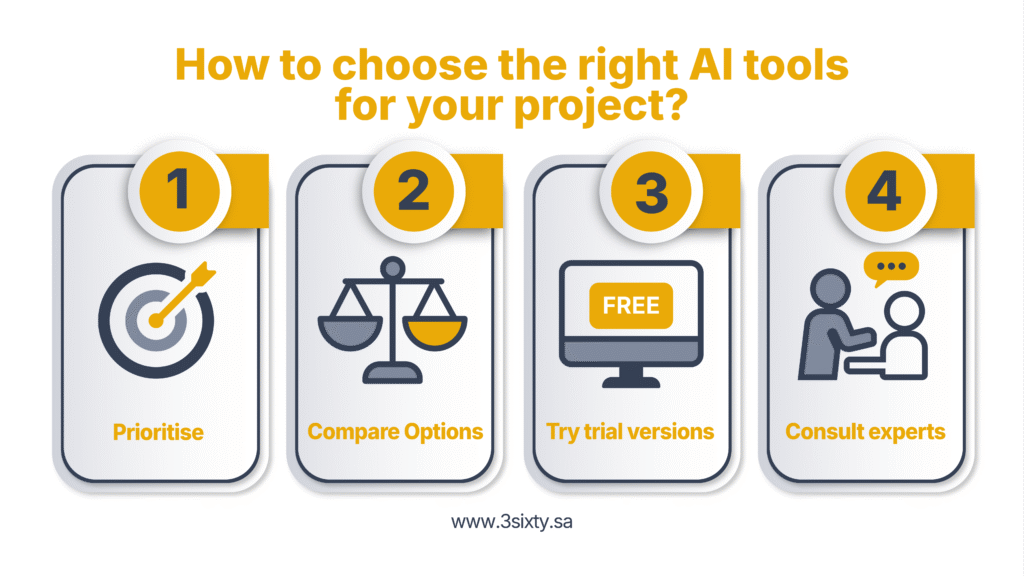
How to choose the right AI tools for your project?
The first step in choosing AI tools is to know what you need. Start by identifying the problems you want to solve, such as improving productivity or analysing data. Additionally, research the evaluation of AI platforms online and ensure they are easy to use and align with your goals.
- Prioritise: Focus on tools that support your goals, such as improving customer experience or reducing costs.
- Compare Options: Use evaluation tools such as AI Platform Evaluation to compare price and technical support.
- Try trial versions: Use free versions to test the integration of innovative tools with the system.
- Consult experts: Rely on local companies for technical consultations.
Choosing the right tool according to your needs ensures your project has a bright start that enhances efficiency and accelerates the achievement of desired results.
Challenges of using artificial intelligence technologies in Saudi institutions
Despite the significant progress the Kingdom is witnessing in the field of electronic marketing, most Saudi institutions in the local market still face multiple challenges when trying to employ artificial intelligence technologies effectively. These challenges may hinder making the most of the potential of artificial intelligence, which requires thoughtful solutions to ensure the success of these practices.
1. Technical challenges and weak infrastructure
Artificial intelligence requires advanced digital infrastructure, which some organisations lack, resulting in increased costs and delayed project implementation. The most critical challenges in this area are:
- Poor reliance on cloud storage solutions.
- Difficulty integrating data from different sources to form a unified and comprehensive view.
2. Privacy and data security
Maintaining the privacy and security of customer information is one of the most substantial challenges facing the expansion of the use of artificial intelligence, especially with Saudi Arabia’s strict data protection laws, which force organisations to invest in advanced technologies such as encryption and identity management.
3. Integration with traditional systems
Organisations often rely on legacy systems that are not easily compatible with modern AI technologies, complicating integration and application processes. Challenges include:
- The need to redesign existing processes to fit innovative tools.
- Resistance of some employees to change, coupled with a lack of training and qualification.
Overcoming these obstacles requires a gradual approach that begins with developing infrastructure and modernising systems, through qualifying human resources, and promoting and developing a culture of digital innovation within the work environment. With these steps, organisations can truly benefit from artificial intelligence and make a positive impact that lasts in the long term.
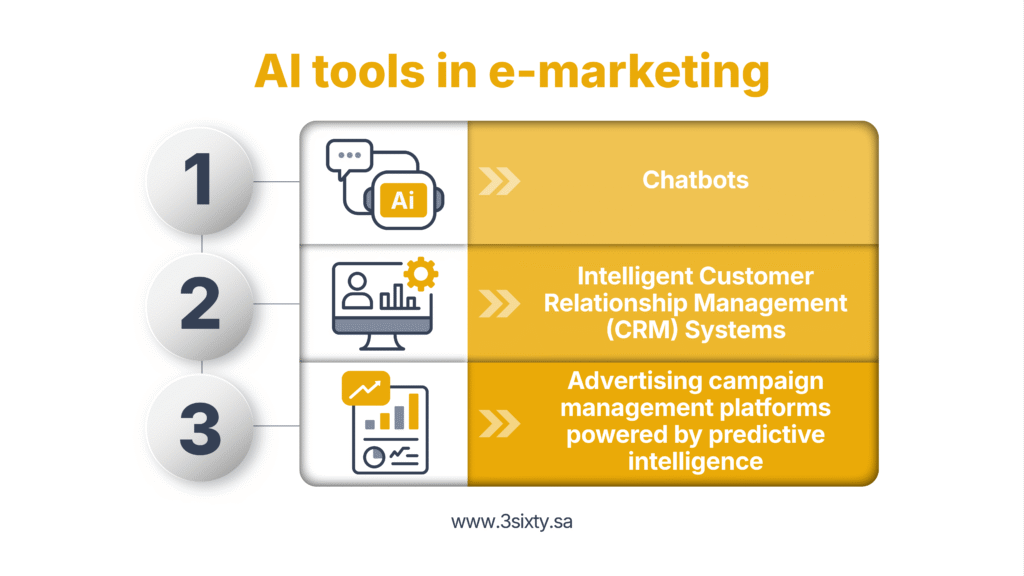
What are the most critical AI marketing tools that enhance your digital strategy?
AI tools are an essential element in developing electronic marketing strategies in modern companies, and here is a group of the best tools that rely on artificial intelligence, which contribute to improving the performance of marketing campaigns and achieving maximum results:
ChatGPT: It is an important AI tool today, which can be used to answer queries, create creative materials, make recommendations, and even participate in conversations.
It has been trained on a vast amount of text material from the Internet, giving it a broad understanding of the language and a variety of topics.
Chatfuel: A tool specialised in creating AI-based chatbots within the Facebook Messenger platform, where they help enhance customer interaction and provide self-support solutions.
Acquisio: A digital platform that uses artificial intelligence to manage online advertising campaigns efficiently and intelligently, enhancing advertising performance.
Marketo: This tool allows you to improve your digital marketing strategies by providing advanced AI-based reporting, which enhances the effectiveness of campaigns.
Salesforce Einstein: This technology uses artificial intelligence to improve the marketing and sales experience and better manage customer relationships.
Adext AI: Rely on artificial intelligence to improve digital advertising campaigns and increase return on investment.
Albert AI: An intelligent platform that analyses data using artificial intelligence to provide personalised recommendations and improve digital marketing strategies.
Cortex: Provides in-depth analysis of user behaviour using artificial intelligence to improve marketing campaigns and offers.
The future of AI tools in marketing: where are we headed?
With the rapid development of digital technologies, AI tools used in e-marketing are expected to witness a radical transformation in the way marketing strategies are built and implemented.
These tools will contribute to improving customer targeting through in-depth analysis of user behaviour, making advertising campaigns more accurate and effective. It will also enhance interactive intelligence capabilities through intelligent chatbots capable of providing instant and personal interaction with customers.
At the same time, AI technologies will allow marketers to automatically create content that matches the interests of the target audience, while improving the user experience by providing accurate recommendations and personalised content that enhances engagement and loyalty.
Advanced automation and more innovative analytics
Advanced automation capabilities are also likely to evolve, so that marketing campaigns are managed more efficiently and accurately, along with more in-depth data analytics that contribute to making decisions based on realistic insights.
In addition, artificial intelligence will directly impact SEO by enhancing the ranking and appearance of websites intelligently, in addition to its increasing role in analysing and modifying video content to provide a more attractive viewing experience suitable for the target digital audience.
The role of artificial intelligence in increasing digital interaction
There is no doubt that AI tools have become an essential element in the world of digital marketing, not only as a tool to improve efficiency, but as a strategic driver that reshapes the relationship between brands and their target audience.
As Saudi and international companies continue to adopt these technologies, the future holds vast opportunities for development and growth. By choosing the right tools and overcoming challenges with awareness and wise investment, organisations can position themselves in a competitive, pioneering position that enables them to achieve tangible and sustainable results.
Frequently Asked Questions (FAQ):
1. What are AI tools in marketing?
These are techniques based on data analysis, machine learning, and intelligent forecasting, used to improve the performance of marketing campaigns and personalise the experience for each customer.
2. What is the importance of using AI tools in electronic marketing?
Enhances campaign efficiency, reduces costs, provides accurate, real-time analytics, and helps customise content to suit each target group.
3. How do I choose the right AI tool?
Start by defining your problem or goal, then compare available tools based on ease of use, technical support, and integration with their systems, and don’t forget to try free copies.
5. Do AI tools replace human marketers?
No, but it completes their roles. AI tools enhances decisions and increases effectiveness, while human skills remain essential for creativity, strategy, and understanding cultural context.
